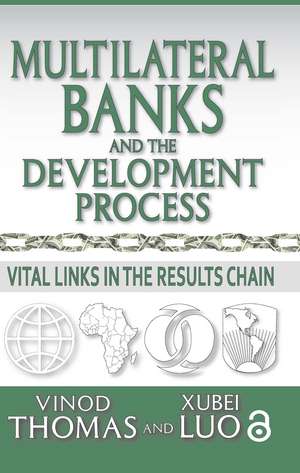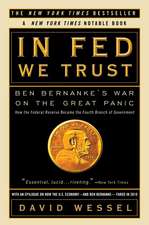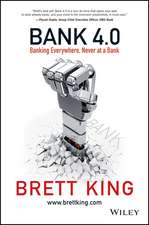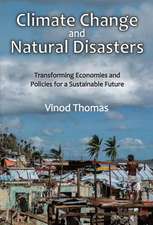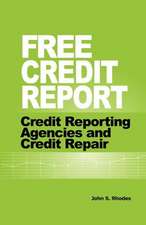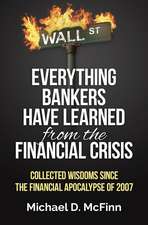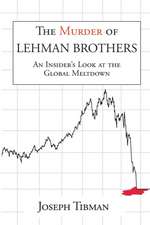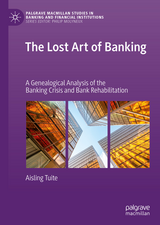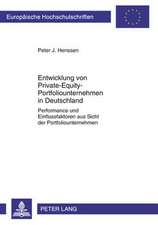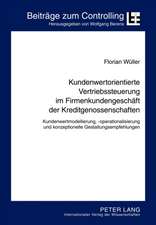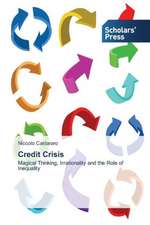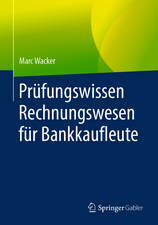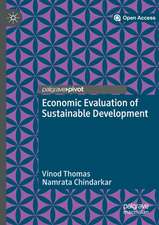Multilateral Banks and the Development Process: Vital Links in the Results Chain
Autor Vinod Thomas, Xubei Luoen Limba Engleză Hardback – 15 aug 2012
| Toate formatele și edițiile | Preț | Express |
|---|---|---|
| Paperback (1) | 416.22 lei 43-57 zile | |
| Taylor & Francis – 26 iul 2017 | 416.22 lei 43-57 zile | |
| Hardback (1) | 996.33 lei 43-57 zile | |
| Taylor & Francis – 15 aug 2012 | 996.33 lei 43-57 zile |
Preț: 996.33 lei
Preț vechi: 1215.04 lei
-18% Nou
Puncte Express: 1494
Preț estimativ în valută:
190.65€ • 199.56$ • 158.68£
190.65€ • 199.56$ • 158.68£
Carte tipărită la comandă
Livrare economică 31 martie-14 aprilie
Preluare comenzi: 021 569.72.76
Specificații
ISBN-13: 9781412847674
ISBN-10: 1412847672
Pagini: 178
Dimensiuni: 152 x 229 x 15 mm
Greutate: 0.34 kg
Ediția:1
Editura: Taylor & Francis
Colecția Routledge
Locul publicării:Oxford, United Kingdom
ISBN-10: 1412847672
Pagini: 178
Dimensiuni: 152 x 229 x 15 mm
Greutate: 0.34 kg
Ediția:1
Editura: Taylor & Francis
Colecția Routledge
Locul publicării:Oxford, United Kingdom
Cuprins
Eight Lessons, 1. The Results Chain, Part I: Aim to Get Results, 2. Let Not the Urgent Divert the Important, 3. Connect Links that Strengthen Results, Part II: Measuring Results, 4. Composite Indicators Can Mislead 5. Go from Averages to Targeted Segments, 6. Align Intermediate and Final Goals, Part III: Applying Lessons to Boost Results, 7. New Challenges Call for Shifts in Direction, 8. Capture Opportunities, 9. Tarry Not—For Timing Is (Almost) Everything, 10. Conclusion
Notă biografică
Vinod Thomas is Visiting Professor at the National University of Singapore, and Distinguished Fellow at the Asian Institute of Management, Manila. Previously he was director general of independent evaluation at the Asian Development Bank. Prior to that he was senior vice president at the Independent Evaluation Group at the World Bank Group where he had also served as vice president of the World Bank Institute. His books include Economic Evaluation of Sustainable Development, Climate Change and Natural Disasters, and The Quality of Growth.
Xubei Luo is a senior economist at the World Bank Group. She has conducted country work in the East Asia, Europe and Central Asia, and Africa Regions. Her areas of interest include poverty and inequality, economic growth, digital economy, labor market, spatial economy, value chains, business environment, and results chain. She has over 50 publications, including in peer-reviewed journals and as chapters of Handbooks, and has presented guest lectures at Columbia University.
Xubei Luo is a senior economist at the World Bank Group. She has conducted country work in the East Asia, Europe and Central Asia, and Africa Regions. Her areas of interest include poverty and inequality, economic growth, digital economy, labor market, spatial economy, value chains, business environment, and results chain. She has over 50 publications, including in peer-reviewed journals and as chapters of Handbooks, and has presented guest lectures at Columbia University.
Recenzii
"The title of this book should be: ‘Eight lessons that, if heeded, would change development effectiveness.’ The carefully conceptualized and empirically-supported lessons that Thomas and Luo have identified are insightful, important, and useful – with far-reaching implications…Anyone involved in development at any stage along the results chain…will be well-advised to study and heed the lessons in this important book. The challenge is to turn them from just lessons to lessons learned and applied."
Michael Quinn Patton, author of Developmental Evaluation
"[T]his excellent work makes it crystal clear that leaving the desired outcomes outside the evaluation work is not an option if we are serious about achieving ultimate outcomes. While new models focusing on results such as results-based programs or outcome-based aid are emerging, this book provides policy makers with valuable guidance to put a state-of-the-art evaluation framework in place."
Naoko Ishii, deputy vice minister of finance, government of Japan
"This is a welcome and valuable resource for those interested in development effectiveness. Building upon extensive data and techniques in development evaluation, the authors create a convincing, multifaceted picture of the links between actions and results in development. Their empirical evidence and fresh revelations will lead readers to identify missed opportunities in any development project, which will steer the reader to achieving a better long-term outcome."
Dr. Oh-Seok Hyun, president of Korea Development Institute
"This book provides rare insights into the development process, making paradoxical findings enlightening. It appears as a healthy caveat against conventional views, offering new and stimulating lessons."
Patrick Guillaumont, Foundation for Studies and Research on International Development, and professor emeritus at the University of Auvergne
"This excellent volume draws on the evaluations and assessments of The World Bank’s Independent Evaluation Group to shed light on a range of development issues. It contributes to the literature on measurement and evaluation of development outcomes, highlighting, for example, the pitfalls of composite indicators, and arguing for real-time as opposed to ex-post evaluations…This book will be a great resource for the development community."
Ravi Kanbur, T. H. Lee Professor of World Affairs, International Professor of Applied Economics, professor of economics, Cornell University
"Most theoretical treatises in evaluation lack empirical data. This short but incisive book is a welcome exception. It reflects the collective wisdom of seasoned practitioners. It tackles tricky methodological dilemmas head on and it does so with elegance and rigor using a wealth of well-selected, fully documented, and easily understandable examples."
Robert Picciotto, visiting professor, King’s College, London; board member of the European Evaluation Society; former director general, evaluation, World Bank
Michael Quinn Patton, author of Developmental Evaluation
"[T]his excellent work makes it crystal clear that leaving the desired outcomes outside the evaluation work is not an option if we are serious about achieving ultimate outcomes. While new models focusing on results such as results-based programs or outcome-based aid are emerging, this book provides policy makers with valuable guidance to put a state-of-the-art evaluation framework in place."
Naoko Ishii, deputy vice minister of finance, government of Japan
"This is a welcome and valuable resource for those interested in development effectiveness. Building upon extensive data and techniques in development evaluation, the authors create a convincing, multifaceted picture of the links between actions and results in development. Their empirical evidence and fresh revelations will lead readers to identify missed opportunities in any development project, which will steer the reader to achieving a better long-term outcome."
Dr. Oh-Seok Hyun, president of Korea Development Institute
"This book provides rare insights into the development process, making paradoxical findings enlightening. It appears as a healthy caveat against conventional views, offering new and stimulating lessons."
Patrick Guillaumont, Foundation for Studies and Research on International Development, and professor emeritus at the University of Auvergne
"This excellent volume draws on the evaluations and assessments of The World Bank’s Independent Evaluation Group to shed light on a range of development issues. It contributes to the literature on measurement and evaluation of development outcomes, highlighting, for example, the pitfalls of composite indicators, and arguing for real-time as opposed to ex-post evaluations…This book will be a great resource for the development community."
Ravi Kanbur, T. H. Lee Professor of World Affairs, International Professor of Applied Economics, professor of economics, Cornell University
"Most theoretical treatises in evaluation lack empirical data. This short but incisive book is a welcome exception. It reflects the collective wisdom of seasoned practitioners. It tackles tricky methodological dilemmas head on and it does so with elegance and rigor using a wealth of well-selected, fully documented, and easily understandable examples."
Robert Picciotto, visiting professor, King’s College, London; board member of the European Evaluation Society; former director general, evaluation, World Bank
Descriere
A chain is only as strong as its weakest link. This volume emphasizes that some crucial links in development tend to be systematically overlooked. This book will help policy makers and practitioners focus on the links that measure progress, apply lessons, and matter for lasting results.
